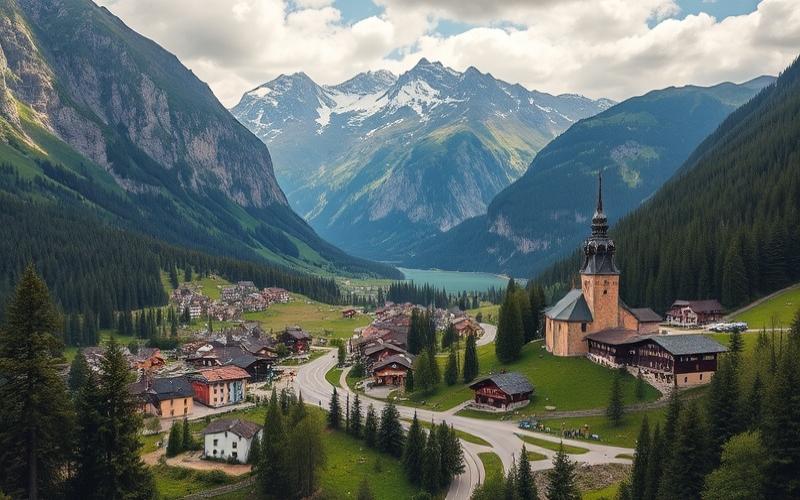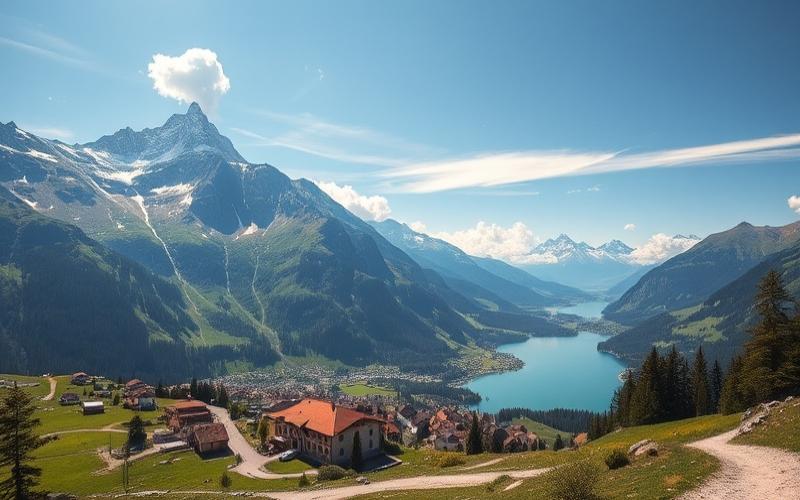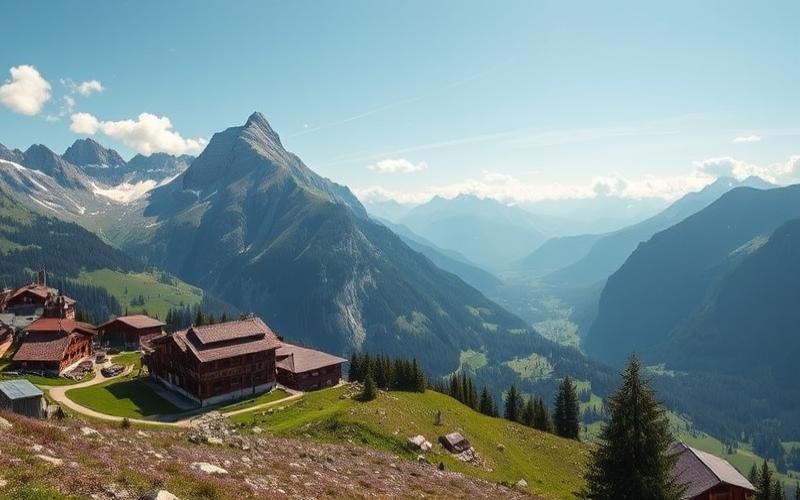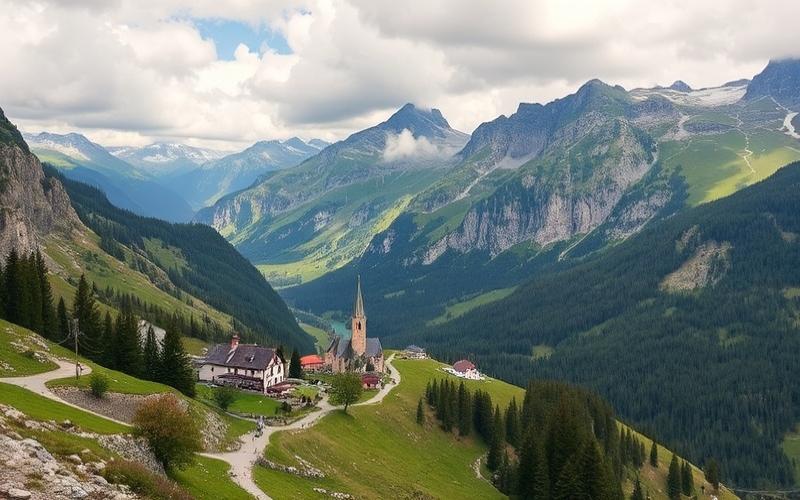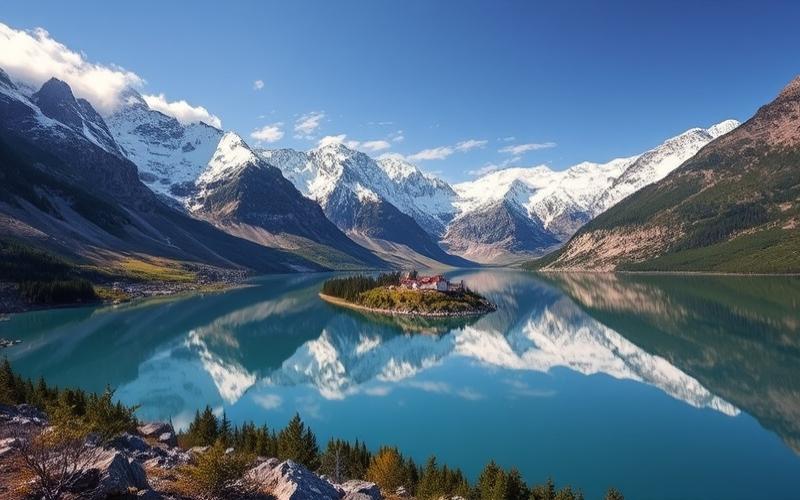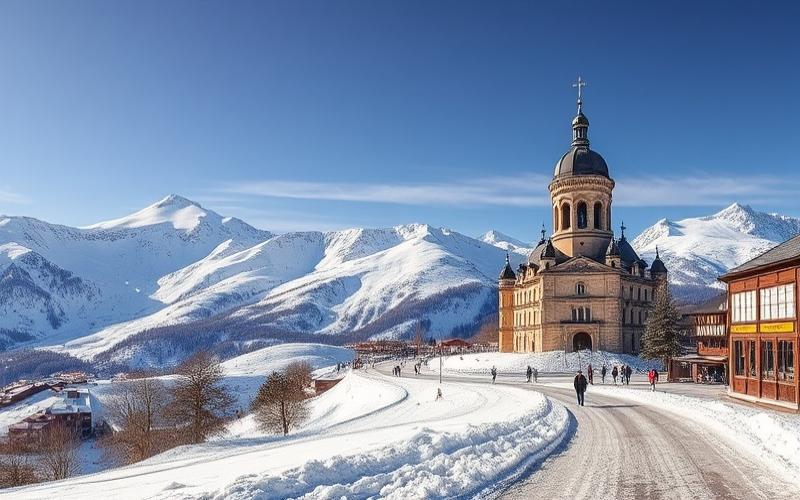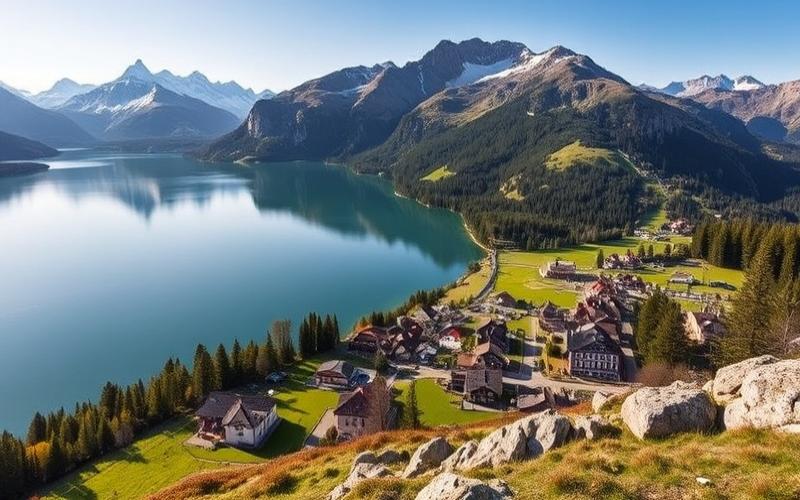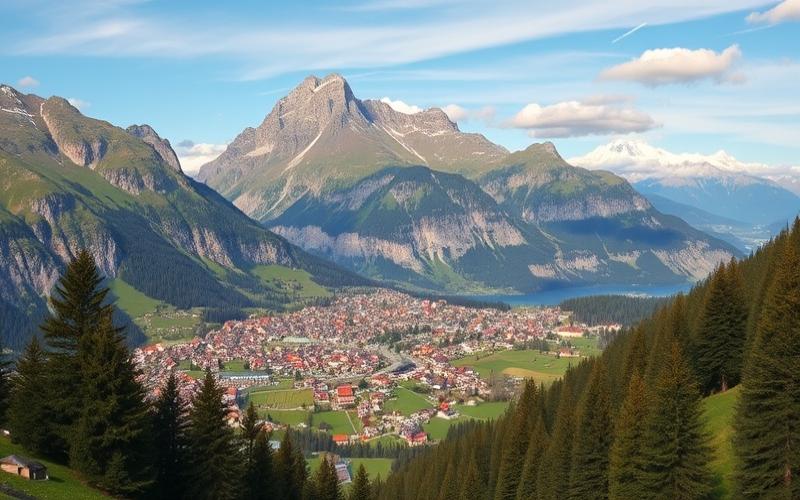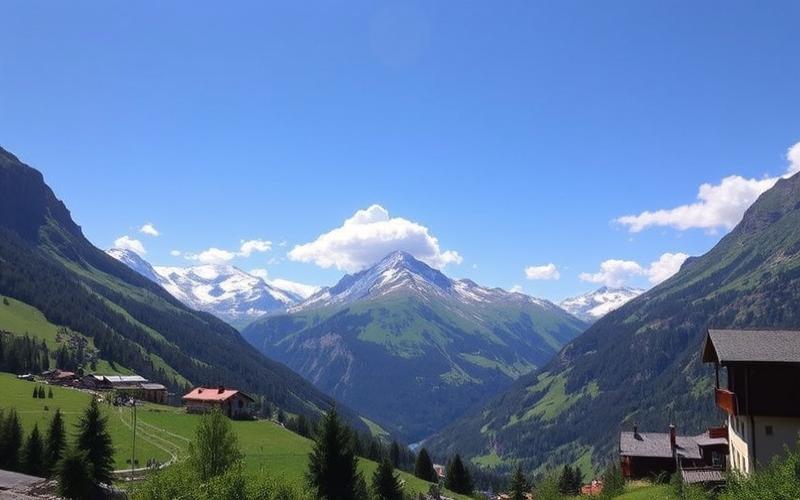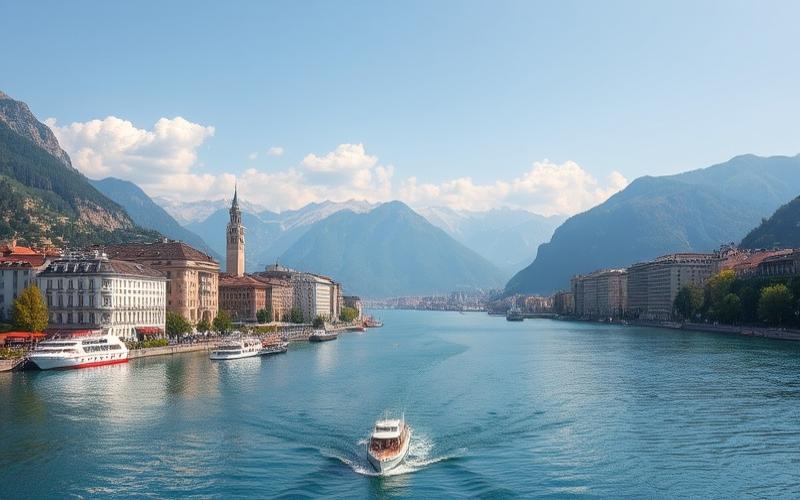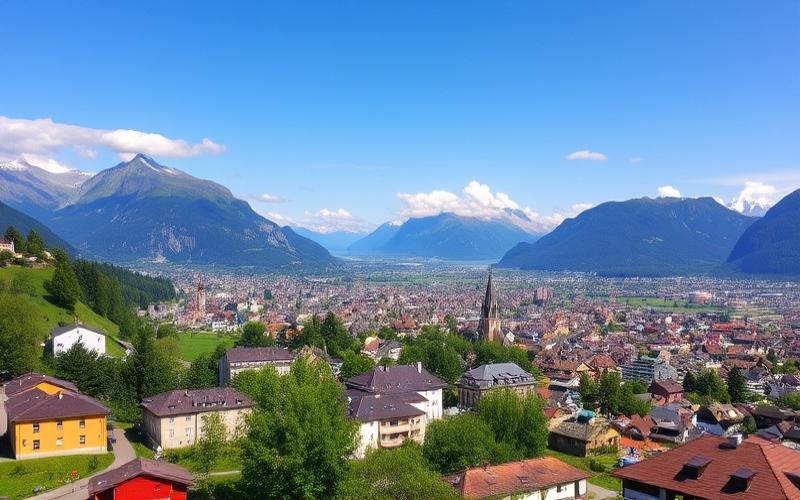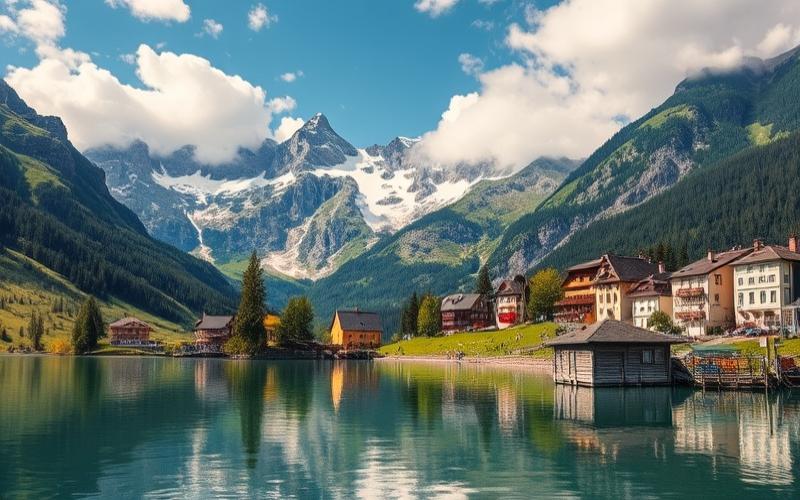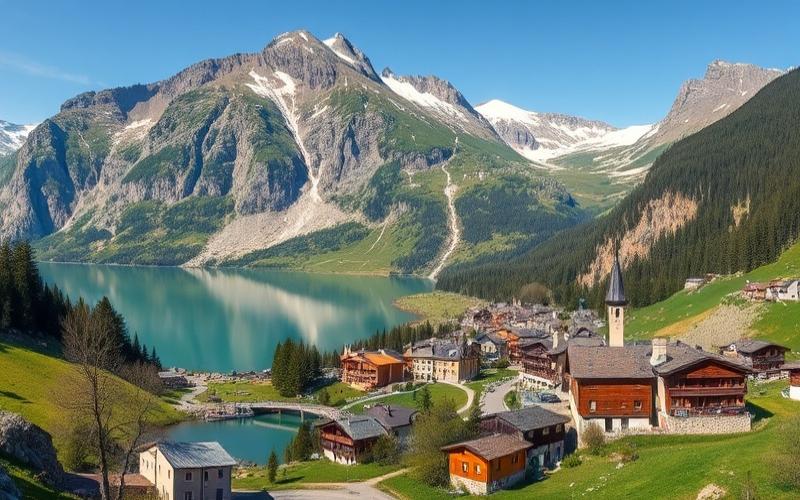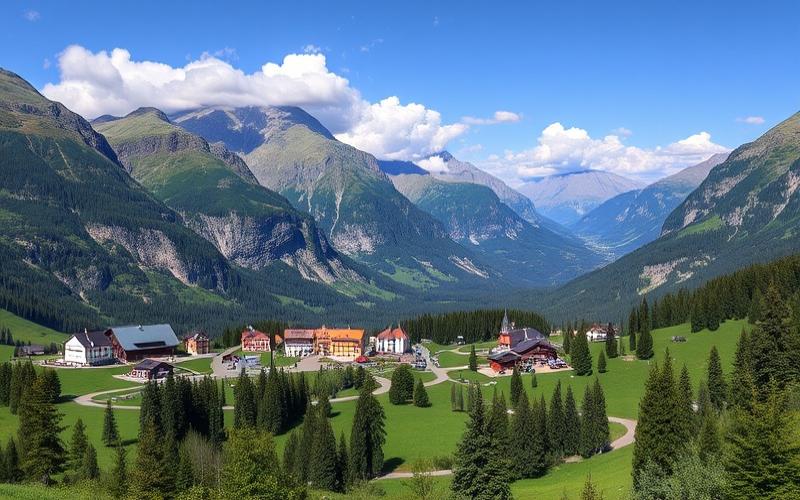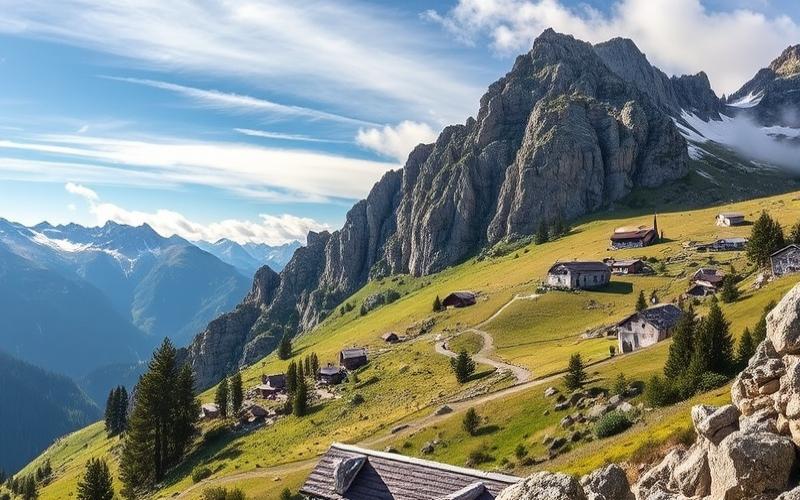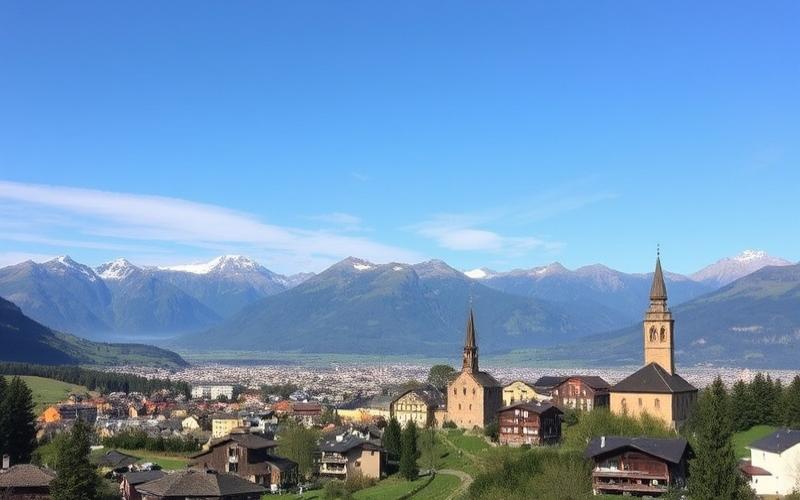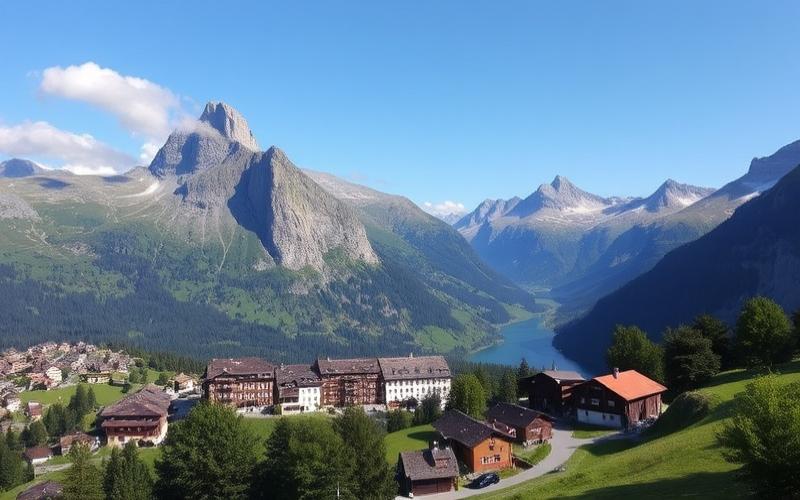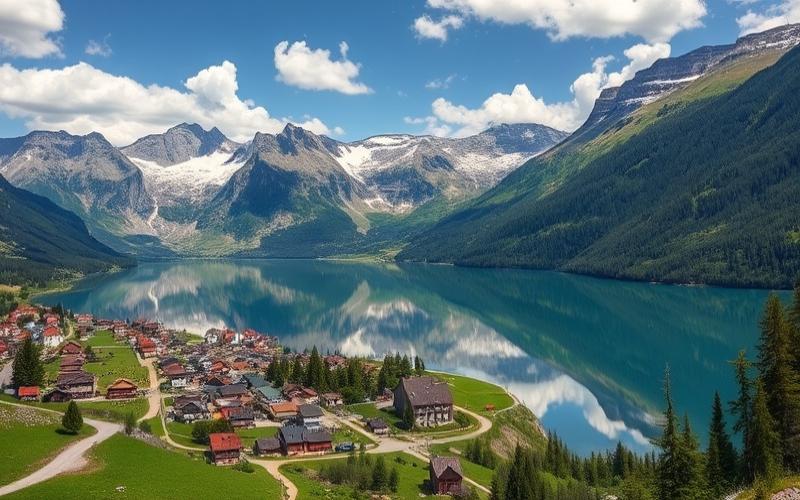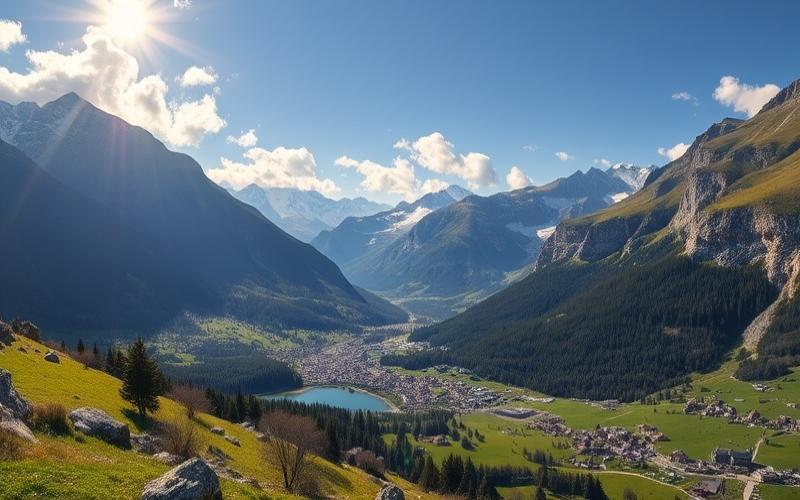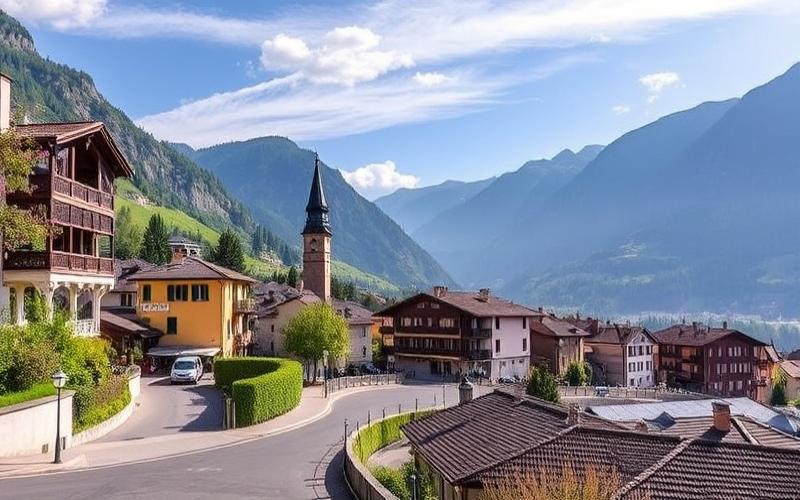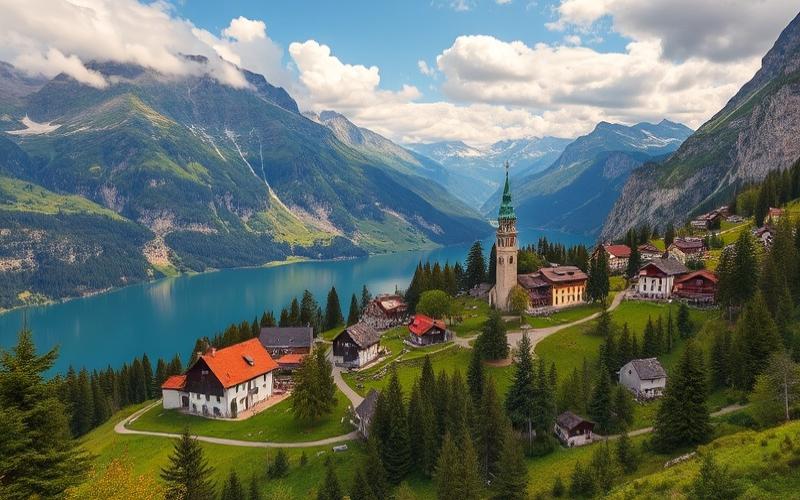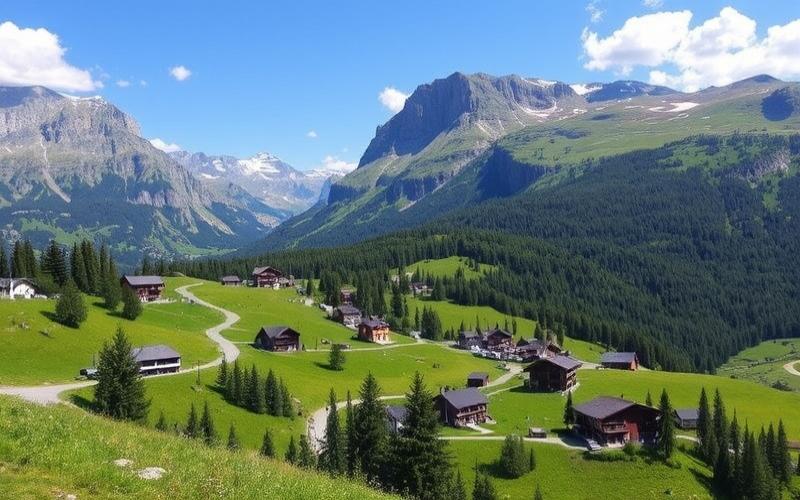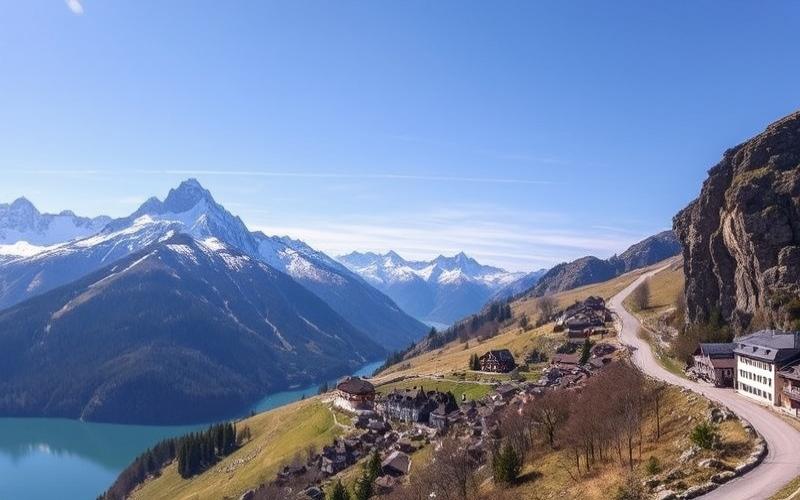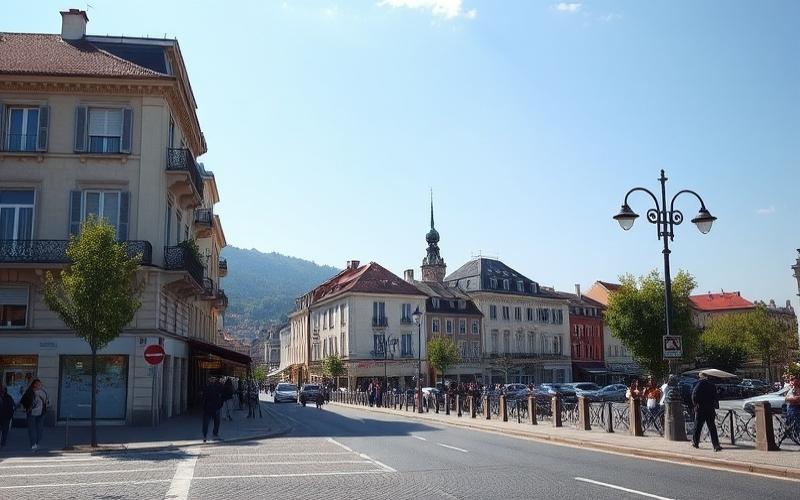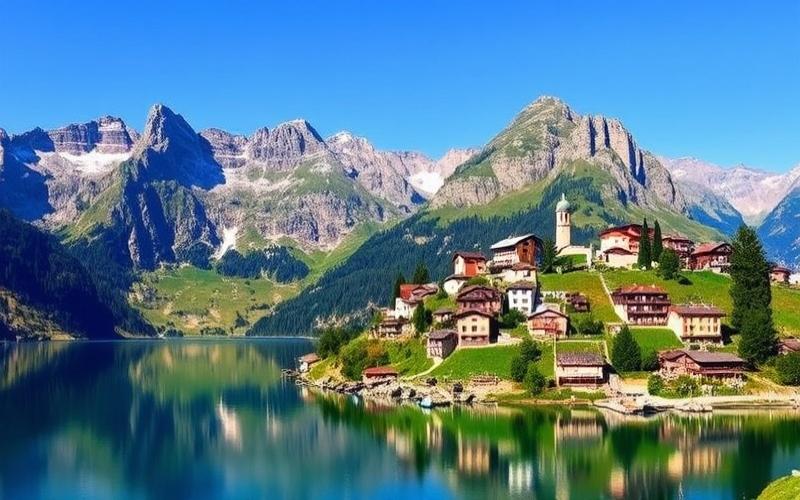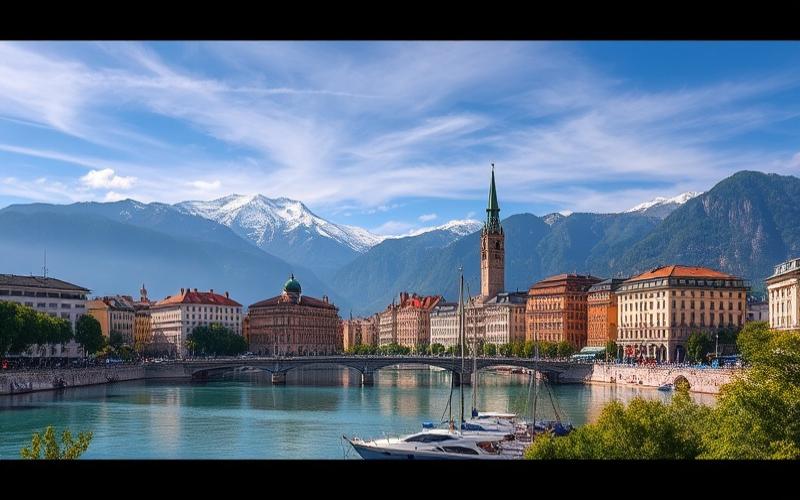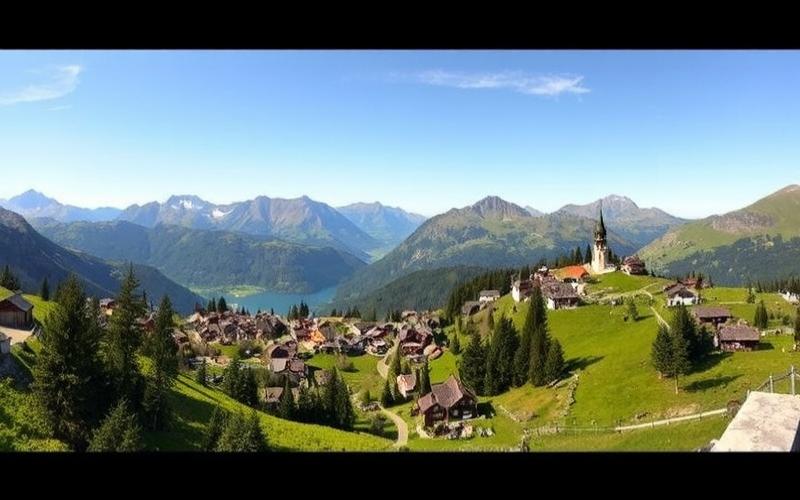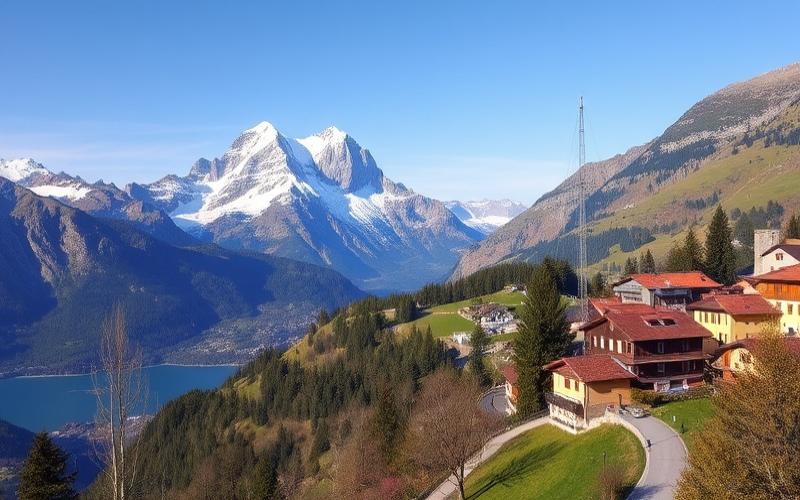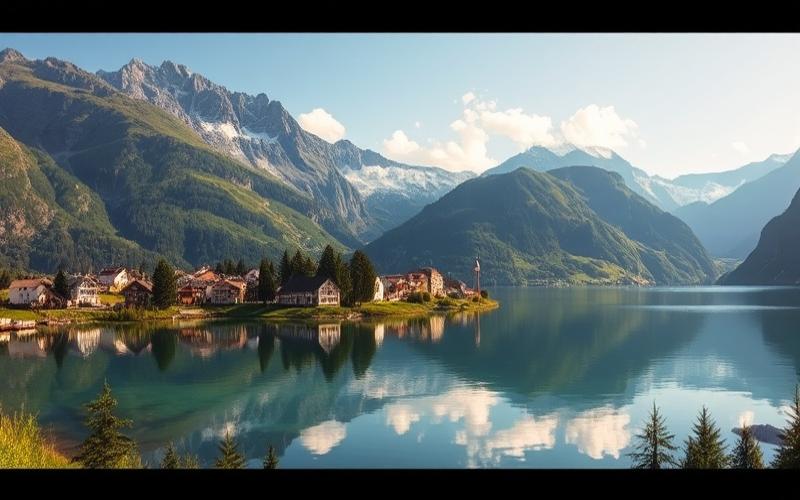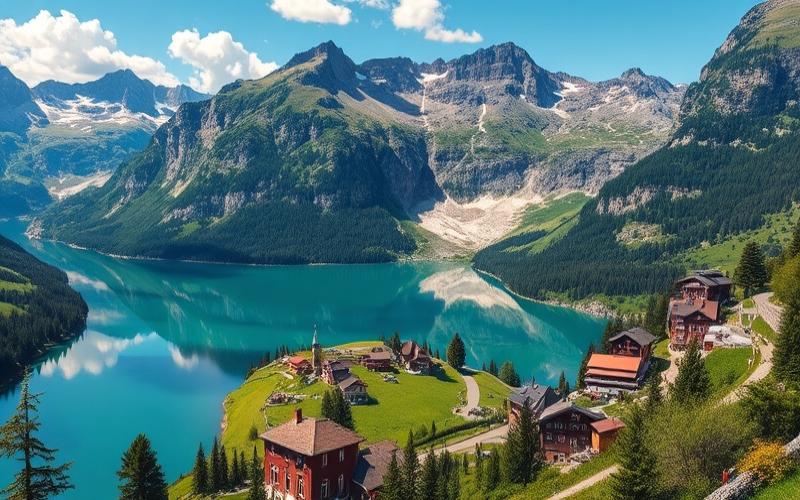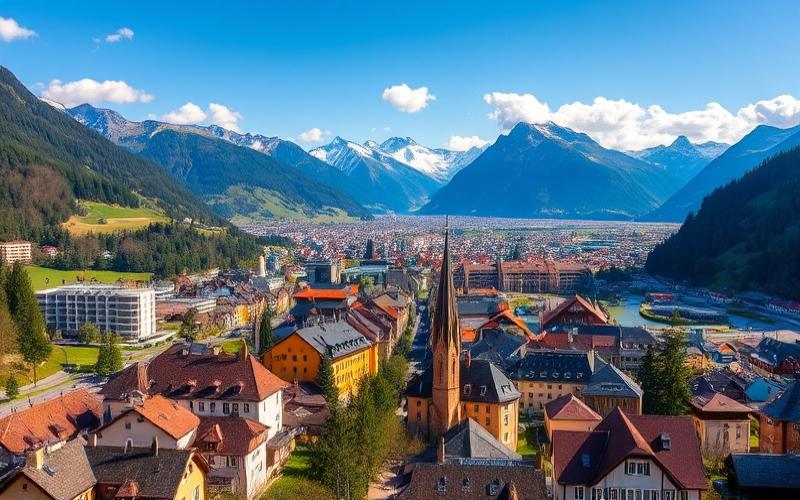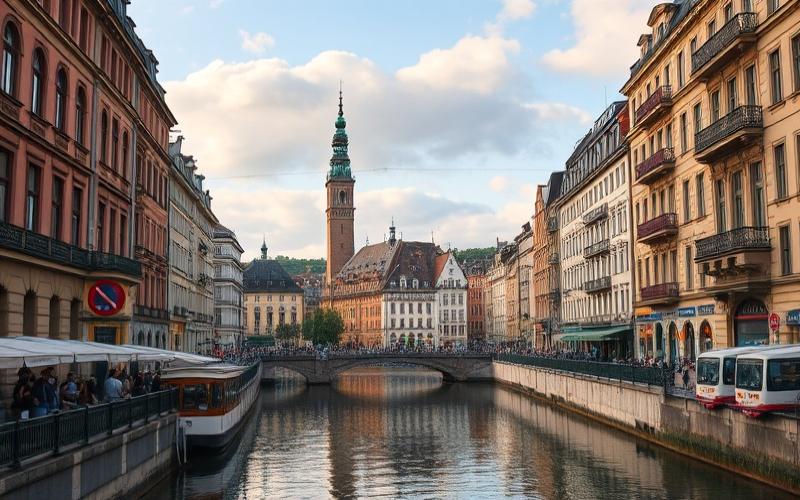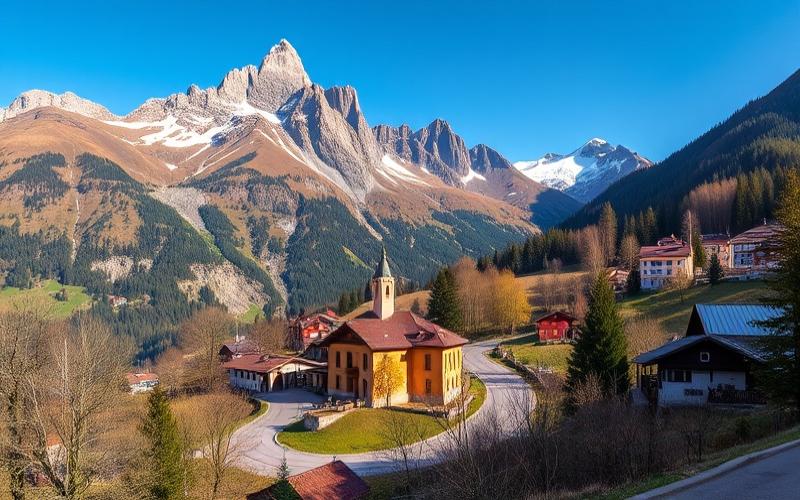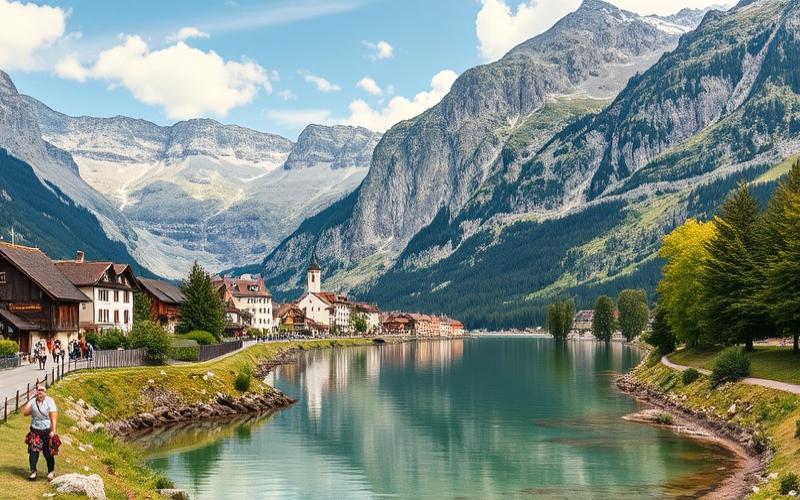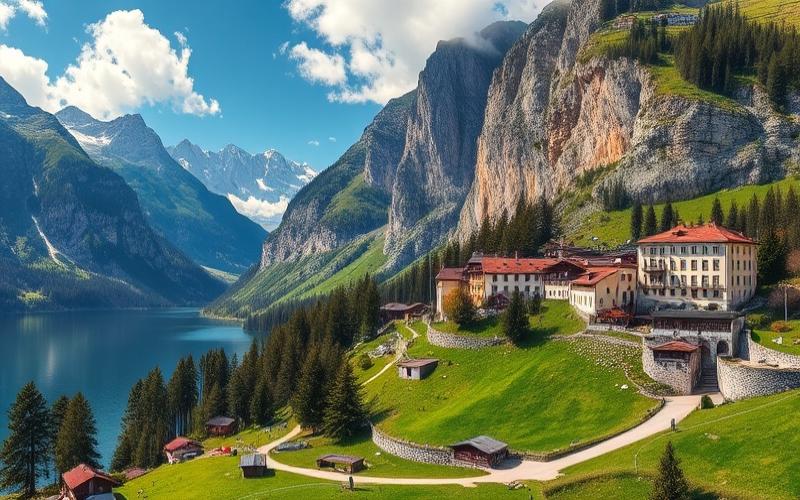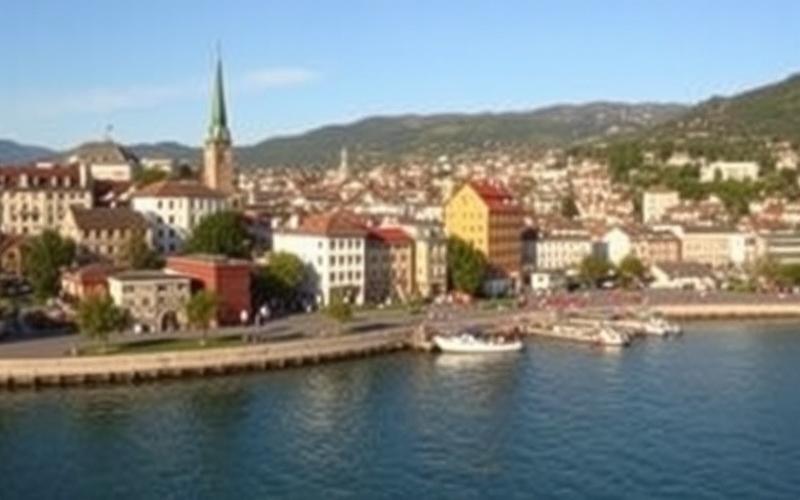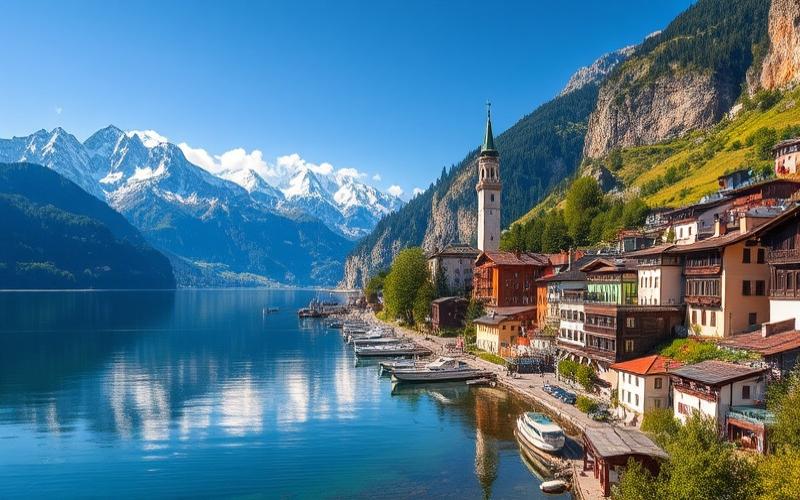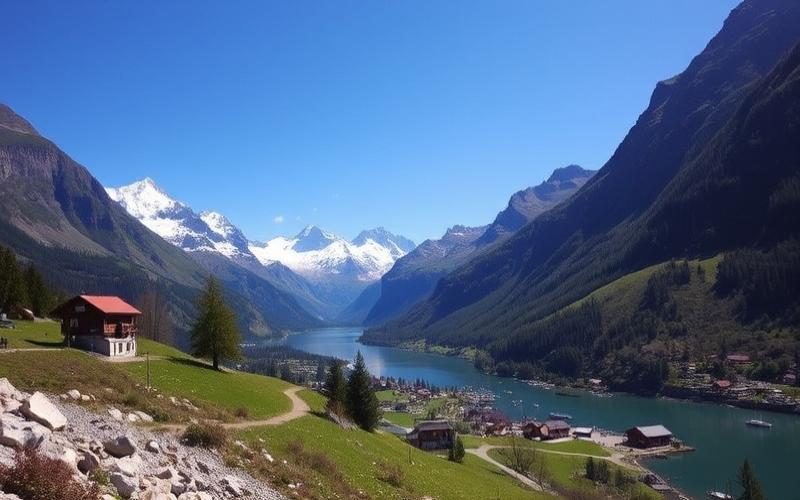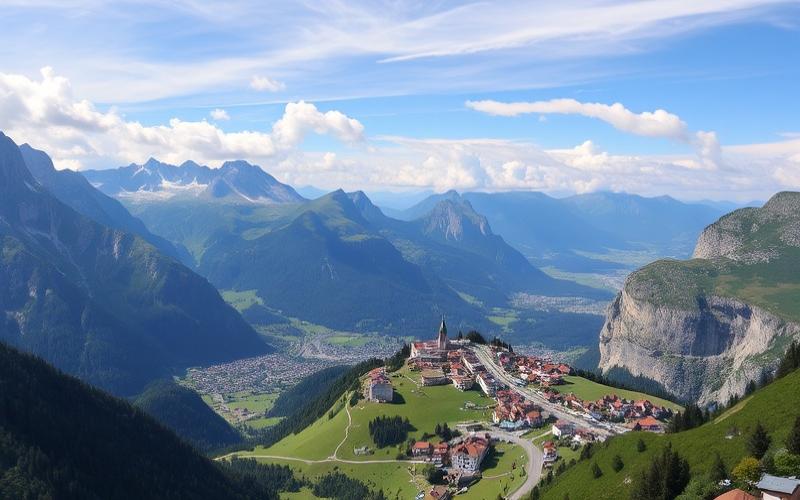
 Published on and written by Cyril Jarnias
Published on and written by Cyril Jarnias
When Choosing the Right Retirement Location Becomes Crucial
Switzerland presents itself as an appealing option for expatriate seniors seeking a peaceful living environment and secure investments. With its stable economy, breathtaking landscapes, and high-quality healthcare system, the country attracts more and more retirees looking to balance quality of life with financial security.
However, investing in Switzerland requires a thorough understanding of the various available options, whether in real estate, financial investments, or new entrepreneurial activities.
This guide provides an overview of the best ways to optimize your retirement in Swiss territory, with particular emphasis on investment opportunities that will meet the expectations of modern seniors.
Why Choose Switzerland for Retirement
Switzerland attracts many retirees thanks to a unique combination of economic benefits, exceptional quality of life, and preserved natural environment.
Economic Advantages
- Remarkable economic stability: Switzerland benefits from a strong economy, offering financial security and confidence to investors and retirees.
- Favorable tax conditions: some cantons offer attractive tax regimes for new residents, particularly through adapted lump-sum taxation. Additionally, the three-pillar pension system structure ensures comprehensive coverage of financial needs in retirement.
- High pensions: depending on previous contributions, pensions can reach up to €10,000 per month for certain qualified profiles.
Quality of Life
- Healthcare system among the best in the world, accessible through enrollment in Swiss social security. Hospital facilities are renowned for their medical and technological excellence.
- High public safety: low crime rate, effective surveillance, and general feeling of security in daily life.
- Exceptional natural landscapes: majestic mountains (Alps), crystal-clear lakes, and vast green spaces offer an idyllic setting conducive to well-being.
| Quality of Life Assets | Details |
|---|---|
| Medical Care | Modern clinics, highly qualified staff |
| Safety | Low crime rate |
| Nature | Mountains, lakes, forests |
Modern Infrastructure
– Dense and punctual railway network facilitating travel throughout the country and with neighboring Europe.
– Efficient urban public transport (streetcars/buses/regional trains) making both cities and countryside accessible.
Diverse Cultural and Leisure Offerings
– Cities like Zurich or Lausanne offer renowned museums, international theaters, and varied artistic festivals.
– Wide range of year-round sports activities: hiking in summer; skiing or water sports depending on the season.
Expatriate Integration
Senior expatriates benefit from:
- Personalized assistance with administrative procedures
- Numerous associations facilitating intercultural meetings
- Dedicated events promoting their integration into the local fabric
Investment Opportunities for Seniors
Opportunities include:
- Real estate acquisition in a stable market
- Secure financial investments through globally recognized Swiss institutions
- Business creation or takeover thanks to cantonal incentive programs
Switzerland combines lasting economic stability; optimized taxation; efficient infrastructure; maximum security; sublime landscapes; rich cultural offerings – all assets that attract more international retirees each year eager to live a fulfilling retirement there.
Good to Know:
Choosing Switzerland for retirement means opting for unparalleled economic stability and favorable tax conditions, particularly thanks to a decentralized tax structure allowing specific optimizations depending on the canton. Quality of life is a major asset, with a healthcare system among the most efficient in the world, high daily security, and stunning natural landscapes ranging from the Alps to crystal-clear lakes. Well-developed transport infrastructure facilitates mobility, while the rich and varied cultural offerings, from renowned museums to music festivals, ensure an exciting daily life. Expatriate integration is fostered by welcoming communities and state support for foreign seniors wishing to invest, from real estate to other lucrative sectors, thus securing their financial future.
Best Swiss Cities for Expatriate Seniors
| City | Quality of Life | Healthcare | Safety | Cost of Living | Cultural Activities & Leisure | Public Transport | Services in English/Other Languages | Housing Options | Community/Social Atmosphere |
|---|---|---|---|---|---|---|---|---|---|
| Zurich | Very High (parks, lakes, green spaces) | Excellent (USZ, Hirslanden) | Very Safe | High | Museums, concerts, theaters; lakeside walks | Dense and efficient network | English widely spoken | Variety: modern apartments and senior residences | Cosmopolitan and dynamic |
| Geneva | High (view of Lake Geneva & Alps) | High-level services | Safe | Very High | International cultural life: museums, festivals; easy access to nature | Highly accessible streetcars/buses | French-speaking/international (many English speakers) | Varied but expensive housing | Very active expatriate community |
| Lausanne | Good (peaceful setting on Lake Geneva) | Good hospital coverage | Safe | More moderate than Zurich/Geneva | Vibrant art scene; water/sports activities; walks on the quays | Well-developed metro/streetcar/train | Services available in French/English | Spacious apartments + houses in suburbs | Human-scale city with friendly atmosphere |
| Basel | Good quality at the border of three countries | Renowned care with modern hospitals | Quiet and secure | Reasonable for a large Swiss city | Numerous international museums; botanical gardens; Rhine riverbanks | Efficient buses/streetcars | Multilingual: German / English / French | Wide choice between downtown or residential neighborhoods | Multicultural openness thanks to cross-border expatriates |
| Bern | Peaceful capital surrounded by greenery | Good medical accessibility | Calm | Moderate | Einstein Museum, UNESCO-listed old town; walks along the Aare | Frequent trains/buses | German/French in public services | Numerous senior residences | Relaxed atmosphere conducive to local encounters |
| Lugano | Mild Mediterranean climate | Good access to Swiss-Italian care | Safe | Less expensive than Zurich or Geneva | Year-round outdoor activities (lake/promenades/mountains), significant Italian influence | Efficient urban buses | Primarily Italian but expatriate presence | Villas/apartments with lake views | Welcoming community focused on dolce vita |
Main Criteria Considered for Each City:
- Quality of Life: Access to natural spaces, healthy environment.
- Healthcare: Proximity to renowned hospitals/clinics.
- Safety: Low crime rate.
- Cost of Living: Varies according to central/peripheral location.
- Cultural Activities & Leisure: Varied programming adapted to seniors.
- Public Transport Accessibility: Reliable infrastructure facilitating car-free travel.
- Language/Integration Services: Presence of international/expatriate associations facilitating integration through foreign languages.
Concrete Examples:
In Zurich, seniors benefit from a dense network to easily reach hospitals or cultural venues. Events like the Zurich Film Festival offer accessible programming year-round.
Geneva offers French-speaking/international social clubs adapted for retirees. Lake Geneva cruises are popular among seniors.
Lausanne attracts with its developed quays for easy walking as well as a rich offering of university conferences open to senior citizens.
Key Takeaway: These cities all offer a balance between health/social security and cultural dynamism. The availability of language options particularly facilitates the welcome for older expatriates not fluent in a Swiss national language.
Good to Know:
Among the best Swiss cities for expatriate seniors, Zurich stands out for its high quality of life, excellent healthcare system, and impeccable safety. Public transport is particularly accessible and English-language services are common, facilitating integration. Geneva also offers these advantages, with a rich cultural scene and numerous parks, ideal for leisure. Although the cost of living is high, healthcare services and sense of community compensate for this expense. Lausanne, more affordable, is known for its initiatives promoting senior mobility and varied cultural programs. Housing options are more diverse, offering better value for money. Bern, with its friendly atmosphere and festivals, provides a warm community environment. However, it’s important to consider that the use of local languages like German or French is common, despite the availability of English services.
Swiss Real Estate Market: A Safe Investment for Retirees
Switzerland is often considered a particularly safe real estate market for retirees, thanks to a unique combination of economic and political stability, favorable real estate price trends, and adapted tax policies.
Key Factors of the Swiss Real Estate Market for Retirees
- Economic Stability: Switzerland benefits from a robust economy, characterized by low unemployment, a strong currency (Swiss franc), and steady growth. This macroeconomic solidity reassures real estate investors.
- Political Stability: The country enjoys a stable democratic system, with reliable institutions that guarantee predictability of the rules.
- Historical Price Trends: Long-term, Swiss real estate has seen positive property value evolution. Despite some recent slowdowns in the transaction market after the end of record low rates, demand remains supported by constant rental income and relative scarcity of buildable land.
- Banking Solidarity: The Swiss banking system is renowned for its security. However, Swiss banks apply rigorous policies regarding mortgage granting to seniors; it’s therefore essential to anticipate financial capacity before purchase or upon retirement.
Comparative Table – Main Assets
| Factor | Description |
|---|---|
| Economic/Political Stability | Stable growth, solid institutions |
| Real Estate Price Evolution | Regular increase over 10 years |
| Banking System | High security; credit access under conditions |
| Taxation | Favorable regimes in some cantons for foreign retirees |
Current Mortgage Rates
Mortgage rates in Switzerland remain relatively attractive despite their recent slight increase following global inflation. This still allows solvent senior investors to partially finance their real estate acquisition in the country.
Advantageous Taxation for Foreign Retirees
Some Swiss cantons offer an attractive tax regime called “lump-sum taxation,” particularly interesting for wealthy expatriates not engaged in lucrative activity in Switzerland. This system often allows taxation based on lifestyle rather than actual worldwide income.
Regions Favored by Expatriate Seniors
- Geneva: Cosmopolitan city offering high-end medical services, international environment, and excellent quality of life.
- Lausanne: Cultural dynamism and proximity to Lake Geneva attract many affluent retirees seeking tranquility without giving up urban amenities.
- Alpine Regions (Valais/Grisons): Exceptional landscapes conducive to well-being; healthy climate; numerous second homes prized by both Swiss and foreigners.
List – Reasons Explaining This Success:
- Facilitated access to medical care
- Superior environmental quality
- Developed social network around expatriate communities
- Year-round sports activities
Potential Challenges to Consider
List – Sensitive Points:
- Restrictive legislation concerning certain types of acquisitions (particularly second homes)
- High land cost and significant additional fees
- Frequent need for substantial personal contribution
In summary, investing in Swiss real estate remains a safe choice for many retirees thanks to its secure framework, subject however to good financial anticipation and precise knowledge of the local regulatory context.
Good to Know:
The Swiss real estate market is considered a safe investment for retirees, partly thanks to the country’s economic and political stability. Historically, Swiss real estate prices have shown steady growth, reflecting a resilient market that attracts many expatriate seniors, particularly in the Geneva, Lausanne, or Alpine regions, prized for their quality of life. Additionally, the Swiss banking system, renowned for its solidity, currently offers attractive mortgage interest rates. Foreign retirees can also benefit from advantageous tax policies. However, it’s important to consider potential challenges, such as strict regulations on property purchases by non-residents and the high cost of living. These factors make it a potentially interesting investment for those seeking long-term security and stability.
Cost of Living Comparison in Switzerland for Expatriate Seniors
For expatriate seniors considering Switzerland, it’s essential to well understand the diversity of costs according to regions and cities, as well as major differences with other popular retirement destinations.
Cost of Living Comparison in Different Swiss Cantons and Major Cities
The table below presents the median monthly rent for an apartment in some of Switzerland’s main cities:
| City | Median Rent (CHF/month) |
| Zurich | 2,500 |
| Geneva | 2,480 |
| Lausanne | 2,000 |
| Basel | 1,830 |
| Biel/Bienne | 1,490 |
As an indication, the average Swiss rent across all sizes was approximately CHF 1,450 in 2024, but it can easily exceed CHF 3,000 in downtown areas of major metropolises.
Cost of Other Budget Items
- Healthcare:
- Health insurance is mandatory and can represent several hundred francs per month depending on age and chosen level.
- Transportation:
- An annual half-fare adult subscription costs CHF 190.
- Food:
- A restaurant meal varies between CHF 25 to CHF x (up to more than double compared to France), while grocery shopping remains high but proportional to local salaries.
The overall cost of living in Switzerland is approximately +81% higher than that observed in France. To live comfortably in a large city like Geneva or Zurich, a monthly income of at least CHF 7,000 to CHF 8,000 gross is recommended for a single person.
Reductions or Tax Advantages for Expatriate Seniors
Tax advantages vary by canton. Some offer reduced rates on taxation of foreign pensions or propose attractive lump-sum taxation for wealthy retirees if they don’t work locally. There are also sometimes reductions on public transport (preferential rates from legal retirement age), but these measures remain limited compared to some neighboring countries.
International Value-for-Money Comparison
Here’s a quick comparison with two popular destinations for expatriate retirees:
- Portugal:
- Overall cost significantly lower than Switzerland
- Facilitated access to medical care
- Mild climate
- Spain:
- Affordable cost outside major metropolises
- Efficient healthcare system
- Numerous international communities
- Bulgaria:
- Real estate less than 50% of Switzerland
- Security and 40% more purchasing power compared to Western Europe
- Stability EU Member State
In Switzerland, despite a high level of budgetary requirements, one benefits from exceptional quality:
- Efficient public services
- Very high security
- Modern infrastructure
However, many seniors find their pension insufficient against the actual cost borne in some Swiss regions; that’s why they sometimes opt for expatriation to these other countries where their purchasing power will improve significantly.
With my pension, I can no longer live in Switzerland — testimony frequently heard among modest seniors.
Exchange Rate Implications on Expatriate Budget
For those whose main source comes from another country (example: French pension paid in euros), any unfavorable fluctuation of the Swiss franc can abruptly increase their local expenses. Conversely, if the franc decreases relative to their initial currency after moving, this can temporarily improve their purchasing power. This volatility must be integrated into any serious financial planning during permanent settlement.
Additional Elements
- Rural vs Urban Housing:
- Prices drop significantly outside main city centers.
- Living in the countryside often allows better budget/quality balance.
- Mandatory Health Insurance:
Every resident must subscribe to private health insurance; its price depends heavily on the canton and chosen level.
In Analytical Summary:
The choice between settling retirement in Switzerland or elsewhere depends heavily on:
- The actual amount available each month,
- Visible expectations regarding social framework,
- Tolerance for currency fluctuations,
- Specific needs concerning health or daily mobility.
The question is therefore not only that of absolute price but rather that of personal perceived value-for-money — which differs radically for each individual!
Good to Know:
The cost of living in Switzerland for expatriate seniors varies considerably from one region to another, with Zurich and Geneva leading as the most expensive cities, particularly in terms of housing and food, while Bern offers slightly more affordable options. Healthcare, although costly, benefits from an excellent reputation, and some cantons offer advantageous tax reductions for seniors, partially compensating for high expenses. Although transportation is generally efficient, it can represent a significant cost, with annual subscriptions potentially lightening the bill. Compared to other popular destinations like Portugal or Spain, Switzerland presents a significantly higher cost of living, but offers in return first-class quality of life and public services, justifying the investment for some. It’s also crucial to consider exchange rate fluctuations, likely to affect the purchasing power of expatriates whose income is in foreign currencies, a determining factor for a successful relocation.
Disclaimer: The information provided on this website is for informational purposes only and does not constitute financial, legal, or professional advice. We encourage you to consult qualified experts before making any investment, real estate, or expatriation decisions. Although we strive to maintain up-to-date and accurate information, we do not guarantee the completeness, accuracy, or timeliness of the proposed content. As investment and expatriation involve risks, we disclaim any liability for potential losses or damages arising from the use of this site. Your use of this site confirms your acceptance of these terms and your understanding of the associated risks.

